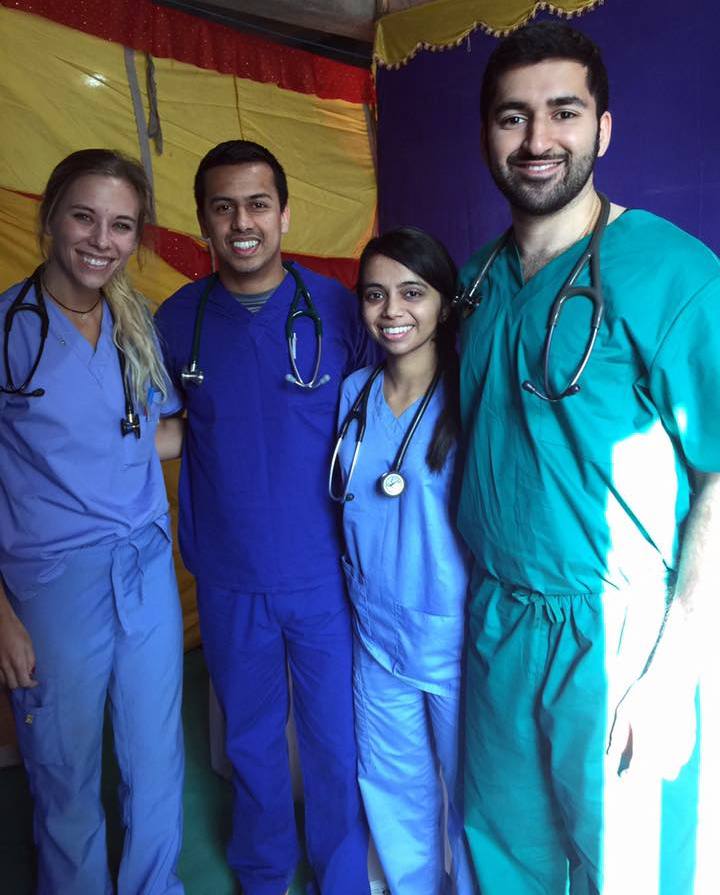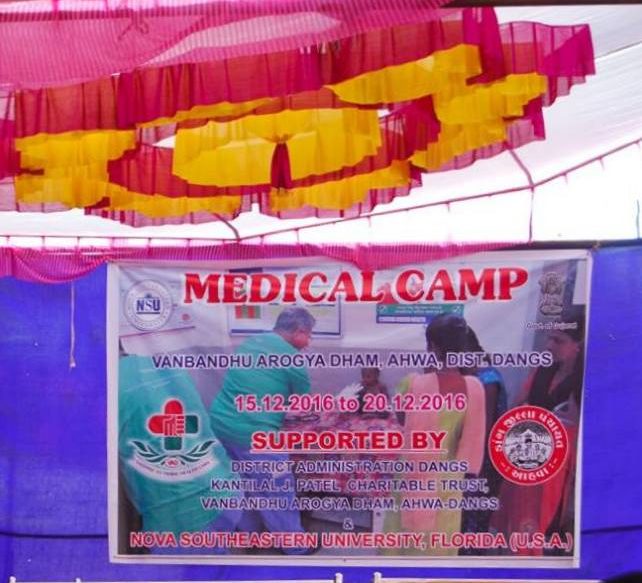I recently returned from a medical outreach trip I went on with other students from my school. We traveled to the state of Gujrat in India and treated patients from a very rural population. Medical outreach trips are an excellent experience for medical students still in their pre-clinical years because they allow you to see firsthand the information you are learning and apply skills you have been taught. Most students have to wait until their third year of medical school for these same opportunities. Furthermore, the lessons students learn and the perspective they gain from their time abroad is unparalleled. Overall I had a great experience and was able to pick up some helpful insight into trips like this along the way. For future students soon to embark on the first trips, here are five things I learned on my medical outreach trip:
5. Don’t call it a medical mission trip.
Did you catch that from the first paragraph? I keep referring to it as a medical outreach trip rather than a medical mission trip. This clarifies some ambiguity about the purpose of your trip. The term “mission trip” implies that you are coming into a country to spread your religion and convert the native people. This may cause easily avoidable problems with the country or organization you are working with. It is important to use the proper terminology not only with the people you will be caring for, but also prior to your arrival in that country. When my classmates and I were applying for our visas to India, we were specifically told not to put “mission trip” as the purpose for our visit because this was more likely to be rejected.
4. Your culture is not their culture.
This probably seems self-explanatory. You are traveling to a foreign country and the people and their customs will be different from your own. However, this point is not that simple. While your patients may dress differently than you or speak a different language, there are likely many other cultural factors that may influence your interactions with them. For example, some cultures wear specific clothing or jewelry to demonstrate a social hierarchy. In other cultures, women practice extreme modesty and even being touched by a man is frowned upon. In India, I noticed that most people consider talking about sexual history and homosexuality as extreme taboo. Before going on a medical outreach trip, read up on the practices, beliefs and traditions of people in that country. This will enable you to be more culturally competent on your trip and more aware of cultural differences in the future.
3. Getting the best experience requires initiative.
When talking to some of my friends who have previously gone on medical outreach trips, they have told me about how they did things they would not normally be able to do here in the United States. This gave me the expectation that as soon as I started seeing patients, I would be doing anything and everything. However, the truth is that I just as easily could have stood back and watched the physicians who accompanied us do all of the work. The whole experience could have become glorified shadowing rather than practicing my skills. In order to prevent this, students have to be proactive. Ask questions about cases and ask if you can interview patients and then present to the physician … the experience will be what you make of it. Remember, a trip like this should be mutually beneficial. The more initiative you take, the better experience you will have and the more patients you will be able to help.
2. Most patients will not have extremely rare pathology.
Those same friends who told me about their medical trips also shared the crazy cases they saw. This made it seem like every patient that walked through the door would be something new and I would have to delve deep into First Aid or Robbins Pathology to diagnose them. Unfortunately (or fortunately), that is not what happened. While some patients came in with interesting complaints and even more interesting diagnoses, most patients did not have terrible diseases or rare infections. Some patients came in with dry skin, some simply felt tired and others just wanted to be looked at by a doctor. While this might seem disappointing, the key thing to realize is that these are common complaints doctors in the United States or any other country will frequently be met with. Patients may not have a strong understanding of the human body, and a problem that seems minuscule to you might be important to them. For these patients, our clinic was free medical service from doctors and medical students in an area that did not have access to formal healthcare. Any complaint is a good enough reason to come in and get looked at.
1. Let the experience change you.
If you open yourself up to every sight, smell and taste that your medical trip has to offer, I guarantee you will not come back the same person you left as. Every person I have talked to has said their medical trip changed them, and that is because they kept an open mind. Work hard, experience the culture and try to embrace your surroundings. Perhaps most importantly, take a hard look at your patients. Try to understand that their lives are different from yours, and the medical knowledge we sometimes take for granted is unfamiliar to them. By doing all of this you will come back from your medical outreach trip refreshed, more grateful for what you have and with improved awareness and sensibility towards your future patients.


